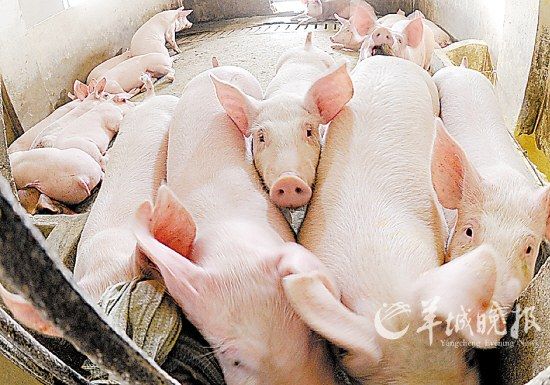(Ecns.cn)--As pork prices continue to soar, breeding pigs has become a craze in China. Inexperienced individuals, as well as companies and institutions in the catering industry, finance, and real estate, are joining professional pig farmers in the profitable pig-raising industry.
"Each 25 kg piglet sells for 600 yuan ($93), nonnegotiable," said Mr Wu, a trader of young pigs in Jiangxi Province, adding that "in this pork market, it is reasonable that the pork price is four to six yuan higher per kilo than before."
This is true. Ms Huang in Guangxi Zhuang Autonomous Region just bought more than 100 piglets at 20 yuan ($3) per kilo. "The sky-high pork prices have resulted in a rise in the piglet price," she said.
Statistics show that during the first half of this year, franchised pig farmers of the Guangdong Wenshi Food Group cashed in 23,000 yuan ($3,570) each on average, an increase of 39.1% since the previous year.
Amateurs follow the latest craze
As the pig price fluctuates greatly and food safety problems have become serious, companies in various areas have begun to raise pigs themselves.
E Fund Management Corporation, China's second-largest asset management firm, built a dining hall in 2006 and employed local farmers to breed pigs and chickens and plant vegetables.
Similar practices have been taken on by many other companies in Guangdong. "In this way, food safety can be assured and the cost can be reduced," said a boss there.
"With rising pork prices, we are making less and less profits," complained Mr. Tan, owner of a restaurant in Guangzhou, the capital of Guangdong Province.
Therefore, Tan plans to set up a pig farm jointly with several owners from other restaurants. "We just want to support our own restaurants," added Tan.
Probably driven by the tidy potential profits, investors, both companies and individuals, have also thrown their eye onto the increasingly popular pig-breeding market, including Goldman Sachs and Ding Lei, CEO of NetEase, one of China's biggest Internet portals.
Ding said in March he would build a pig farm in Zhejiang Province, with a total investment of up to 300 million yuan ($46.6 million).
More capital is coming from the real estate enterprises as well. Liu Yuande, vice president of a Guangzhou-based property firm called Mayland Group, has invested 120 million yuan ($18.6 million) since 2008 into establishing a pig farm in the city.
Liu said compared to the overheated real estate sector that has undergone government curbs, raising pigs, which is subsidized by the government, is becoming more attractive
The State Council said on July 13 that farmers and companies will receive a 100 yuan ($15.5) subsidy for every sow they raise.
"Any industry that is closely related to people's daily meals is quite promising," said Liu.
Directly affected by the rising pig prices, citizens are trying to be self-sufficient by breeding pigs themselves. "Pork is now too expensive, and food safety is also worrying," said one web user, adding that "I am planning to hire some farmers to raise pigs on a mountain.
Some foreseers seemingly already put this idea into practice years ago. "I bought some land near Wuling Mountain in Beijing and am raising pigs by myself now. After four years of hard work, my farm can produce 40 pigs every year," said a netizen.


















